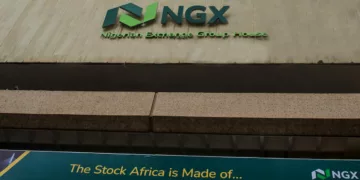An industry analyst Victor Akaa from Lugbe, Abuja, has stressed that the Nigerian real estate market, which has experienced unprecedented growth due to increased demand for housing and commercial spaces, is now facing an alarming surge in fraudulent schemes perpetrated by unscrupulous developers, Akaa highlights how the promise of homeownership has turned into a nightmare for many Nigerians, with countless victims losing their life savings, loans, and inheritances.
Akaa points out that these fraudulent activities are particularly rampant in Lagos, driven by developers who employ deceptive tactics to dupe unsuspecting buyers.
Many of these developers market non-existent or incomplete projects, using fake documents and persuasive marketing materials to attract investors.
In some cases, they sell properties in developments that are either significantly delayed or completely abandoned, leaving investors stranded.
One notorious scheme, known as the “Buy Back” arrangement, is frequently used to trap buyers. Developers promise readymade homes with a buy-back option if terms are not met within a specified period, only to abscond, often relocating abroad—most commonly to the UK—while flaunting political connections to avoid accountability.
“The consequences are devastating,” Akaa noted, highlighting the emotional trauma, financial ruin, and mental health issues many victims experience.
“Many Nigerians who have fallen prey to these scams are left in financial distress, with little chance of recovering their investments.”
The broader implications for the economy are equally concerning, as the real estate sector—once seen as a vital contributor to national growth—suffers a severe reputational blow.
Akaa estimates that over 50 per cent of real estate transactions in Nigeria are tainted by fraud, with billions of naira lost in recent years. Authorities, he argues, have struggled to keep pace with the growing scale of the problem.
Akaa attributes this crisis to a lack of regulatory oversight, weak enforcement mechanisms, and the overall economic instability, which creates fertile ground for fraudsters to exploit desperate investors.
To combat this menace, Akaa calls for stronger regulatory measures and oversight. He urges the Federal Ministry of Works and Housing to take a more active role in monitoring developers.
Additionally, he advocates for the Economic and Financial Crimes Commission (EFCC) to step up investigations and prosecutions of fraudulent developers.
Transparency should also be mandated, Akaa suggests, with developers required to disclose detailed project information, including timelines, budgets, and completion guarantees. Public education, through media campaigns, workshops, and financial literacy initiatives, is critical to empowering potential buyers to recognise risks and avoid falling victim to scams.
He also proposes establishing dispute resolution centres to help mediate conflicts between buyers and developers, ensuring swift and fair outcomes.
For prospective property owners, Akaa advises thorough research into the credentials of developers, seeking professional legal and financial advice, and ensuring all agreements are documented. Reporting suspicious activities to the authorities, he emphasises, is essential in tackling the spread of real estate fraud.
In closing, Akaa references Section 43 of the 1999 Constitution of the Federal Republic of Nigeria, which guarantees citizens the right to acquire and own property. By exercising diligence and demanding transparency, he believes Nigerians can protect themselves from fraud and restore confidence in the country’s real estate industry.






